第36章 CHAPTER 3(11)
Let us remember, then, so far as regards mere thought, that during allthat period in the world's existence, and in the progress of cultivation,in which great and fruitful new truths I could be arrived at by mere forceof genius, with little precious study and accumulation of knowledge -- duringall that time women did not concern themselves with speculation at all. Fromthe days of Hypatia to those of the Reformation, the illustrious Heloisais almost the only woman to whom any such achievement might have been possible;and we know not how great a capacity of speculation in her may have beenlost to mankind by the misfortunes of her life. Never since any considerablenumber of women have began to cultivate serious thought, has originalitybeen possible on easy terms. Nearly all the thoughts which can be reachedby mere strength of original faculties, have long since been arrived at;and originality, in any high sense of the word, is now scarcely ever attainedbut by minds which have undergone elaborate discipline, and are deeply versedin the results of previous thinking. It is Mr. Maurice, I think, who hasremarked on the present age, that its most original thinkers are those whohave known most thoroughly what had been thought by their; predecessors: and this will always henceforth be the case. Every fresh stone in the edificehas now to be placed on the top of so many others, that a long process ofclimbing, and of carrying up materials, has to be gone through by whoeveraspires to take a share in the present stage of the work. How many womenare there who have gone through any such process? Mrs. Somerville, aloneperhaps of women, knows as much of mathematics as is now needful for makingany considerable mathematical discovery: is it any proof of inferiority inwomen, that she has not happened to be one of the two or three persons whoin her lifetime have associated their names with some striking advancementof the science? Two women, since political economy has been made a science,have known enough of it to write usefully on the subject: of how many ofthe innumerable men who have written on it during the same time, is it possiblewith truth to say more? If no woman has hitherto been a great historian,what woman has had the necessary erudition? If no woman is a great philologist,what woman has studied Sanscrit and Slavonic, the Gothic of Ulphila and thePersic of the Zendavesta? Even in practical matters we all know what is thevalue of the originality of untaught geniuses. It means, inventing over againin its rudimentary form something already invented and improved upon by manysuccessive inventors. When women have had the preparation which all men nowrequire to be eminently original, it will be time enough to begin judgingby experience of their capacity for originality.
It no doubt often happens that a person, who has not widely and accuratelystudied the thoughts of others on a subject, has by natural sagacity a happyintuition, which he can suggest, but cannot prove, which yet when maturedmay be an important addition to knowledge: but even then, no justice canbe done to it until some other person, who does possess the previous acquirements,takes it in hand, tests it, gives it a scientific or practical form, andfits it into its place among the existing truths of philosophy or science.
Is it supposed that such felicitous thoughts do not occur to women? Theyoccur by hundreds to every woman of intellect. But they are mostly lost,for want of a husband or friend who has the other knowledge which can enablehim to estimate them properly and bring them before the world: and even whenthey are brought before it, they generally appear as his ideas, not theirreal author's. Who can tell how many of the most original thoughts put forthby male writers, belong to a woman by suggestion, to themselves only by verifyingand working out? If I may judge by my own case, a very large proportion indeed.
If we turn from pure speculation to literature in the narrow sense ofthe term, and the fine arts, there is a very obvious reason why women's literatureis, in its general conception and in its main features, an imitation of men's.
Why is the Roman literature, as critics proclaim to satiety, not original,but an imitation of the Greek? Simply because the Greeks came first. If womenlived in a different country from men, and had never read any of their writings,they would have had a literature of their own. As it is, they have not createdone, because they found a highly advanced literature already created. Ifthere had been no suspension of the knowledge of antiquity, or if the Renaissancehad occurred before the Gothic cathedrals were built, they never would havebeen built. We see that, in France and Italy, imitation of the ancient literaturestopped the original development even after it had commenced. All women whowrite are pupils of the great male writers. A painter's early pictures, evenif he be a Raffaello, are undistinguishable in style from those of his master.
Even a Mozart does not display his powerful originality in his earliest pieces.
What years are to a gifted individual, generations are to a mass. If women'sliterature is destined to have a different collective character from thatof men, depending on any difference of natural tendencies, much longer timeis necessary than has yet elapsed, before it can emancipate itself from theinfluence of accepted models, and guide itself by its own impulses. But if,as I believe, there will not prove to be any natural tendencies common towomen, and distinguishing their genius from that of men, yet every individualwriter among them has her individual tendencies, which at present are stillsubdued by the influence of precedent and example: and it will require generationsmore, before their individuality is sufficiently developed to make head againstthat influence.